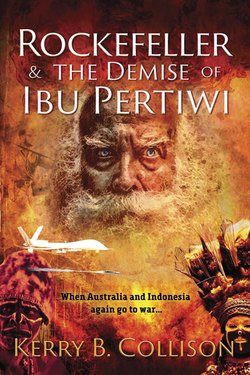Читать книгу Rockefeller & the Demise of Ibu Pertiwi - Kerry B Collison - Страница 9
На сайте Литреса книга снята с продажи.
Оглавление1961 - 1962
Michael Rockefeller clung precariously with one hand to the overturned catamaran, wiped salt-stung eyes, and then craned his neck towards Western New Guinea’s blurred shore. The 23-year old adventurer sensed that the current was dragging him further away from land. In that moment he became fearfully conscious that these waters were populated with both sharks and crocodiles. Could he swim the five miles to shore as the two native guides had attempted or should he remain with the useless hull being tossed around in the roiling sea?
With his free hand, Rockefeller tested the ropes tied to the two empty gasoline cans he had managed to salvage before being thrown into the Arafura Sea. He turned his attention to Rene Wassink, the Dutch anthropologist, who had accompanied him on the expedition on behalf of the Rockefeller Museum. The intention had been to collect artefacts from the Stone-Age peoples of the Asmat tribe who occupied the southern coast of the world’s second largest island.
‘I’m going to try to make it to shore,’ Michael shouted to Wassink.
Unable to swim, the Dutchman appealed to the younger man. ‘You will never make it. The current is far too strong! Stay here with me. Someone is certain to come along and take us to safety.’
Michael was not to be dissuaded. ‘I’ll come back for you,’ he promised.
Stripped down to underwear and with his glasses clenched between his teeth, Michael released his grip and struck out through the challenging waters, paddling towards the mangrove-covered shoreline.
Wassink watched in dismay and offered a silent prayer as Rockefeller quickly disappeared amidst the turbulent seas. It had been at the Dutchman’s urging that Rockefeller had acquiesced and agreed to purchase the motorised catamaran, despite being advised that the vessel was unsuitable for the open ocean.
The anthropologist was aware that he would be held responsible for permitting the scion of one of the most prominent families of industrialists and philanthropists to perish, on his watch.
* * * *
